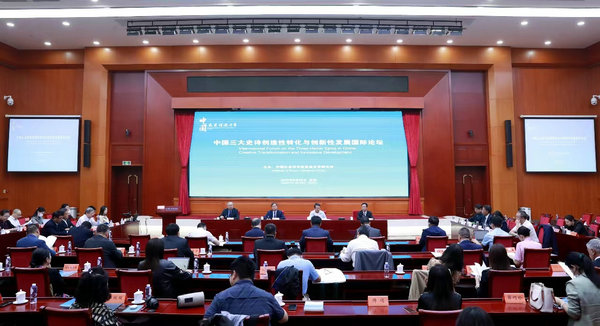

The creative transformation and innovative development of three classic epics of China was the focus of a two-day forum held by the Institute of Ethnic Literature at the Chinese Academy of Social Sciences in Beijing.
These heroic works, namely, the Epic of King Gesar, Epic of Manas and Epic of Jangar, are viewed as cultural essence of ethnic Tibetan, Mongolian and Kyrgyz groups and have been popular with the people for centuries.
Around 50 Chinese and overseas experts, such as scholars from Hungary, Russia, Mongolia, Kyrgyzstan and South Korea, attended the forum that took place on Tuesday and Wednesday.
The forum reviewed achievements in studies of Chinese epics gained over the past decade, and discussed topics including interdisciplinary research and multimedia presentation of these works, and the building of related archives and databases.
At the forum's closing ceremony, Ding Guoqi, Party secretary of the institute, stressed the importance of research into the epics' texts — including the word-of-mouth version, those written in ethnic languages and other translated editions — their aesthetic value and significance in promoting ethnic development.
He called for more efforts in preservation, inheritance and promotion of the epics and wisdom to creatively bring them back to real life rather than keeping them as something lying on bookshelves.